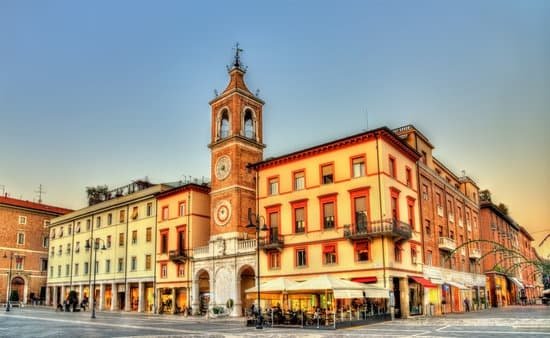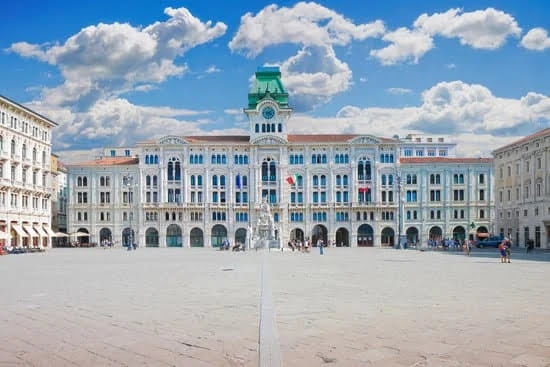
Living in Italy is a milestone experience and an escape to the past. Being at the very heart of European history, culture, and innovation, Italy has left its mark all around the globe. Its historic towns, stunning countryside, remarkable art, iconic music, and exquisite cuisine have attracted people from all walks of life for generations. Home to the Roman Empire and birthplace of the Renaissance period, there is so much to enjoy when living in this Mediterranean dreamland.
Life in Italy – Exploring everyday life for those who live there Those lucky enough to find themselves living in Italy can expect an exciting and incredibly varied lifestyle. From ancient cobblestone streets lined with endless attractions and churches built hundreds of years ago to modern art galleries filled with contemporary works, there’s no shortage of activities.
Lively piazzas full of fabulous cafes and excellent restaurants showcase the nation’s world-famous culinary skills while days spent exploring serene vineyards or taking Italian classes will keep you out of any kind of boredom. Having lived in Italy for more than three decades myself, I can assure you that it is a country full of magic and surprises waiting around every corner.
Italian Culture – Gaining insight into culture & habits within Italy When it comes to Italian culture, some habits can be perplexing at first but once you understand them they become perfectly logical. For instance Italians are famously passionate about their sport; football matches usually turn out as magnificent spectacles filled with passionate cheering.
On Sunday mornings you’ll find locals taking part in their own ritual; strolling through spectacular market stalls or indulging in a creamy Italian cappuccino at their favorite café accompanied by delicious pastries while catching up on local news. But beyond these charming customs lies something far more beautiful; a relaxed spirit which seems ingrained throughout much Italian society that provides an unmistakable atmosphere where everything moves at its own pace; “la dolce vita”.
Cost of Living in Italy
The cost of living in Italy is relatively high compared to other countries around the world. For instance, Switzerland has a lower overall cost of living, as would be expected due to its much higher GDP per capita.
However, if compared with comparable European countries like France and Germany, Italy’s cost of living is right on track or even slightly cheaper than them. Prices range from groceries to apartments and daily necessities can vary significantly depending on which part of the country you are located in.
When it comes to inflation rates, Italy’s inflation rate has been constantly increasing over the years since 2015 due to higher energy prices and certain drops in the Eurozone Index. This means that prices for food items, housing rent, gas, and transportation are also increasing along with it at a higher rate than usual.
Renting an apartment in Rome or Milan will usually require two persons income while; renting an apartment at countryside cities may not require two incomes but will surely come at a lower price point than the capital cities mentioned above.
Inflation has also had an effect on daily expenses such as food items, clothing materials etc., since almost all imported goods have had an increase in prices due to higher taxes and duties imposed by the Italian government. This can sometimes come as a surprise for visitors who aren’t accustomed to paying such high prices for seemingly basic items.
All these facts show that living in Italy certainly comes with more expensive costs when compared to other countries however it has many advantages too since this European country is considered one of the most popular tourist destinations in the world due its rich culture and gastronomic delights that make up unique Italian lifestyle.
Languages & Dialects
Italy is a country dotted with languages, making the experience of living there exciting and diverse. The official language in Italy is obviously Italian, but many other languages are spoken throughout the country. Depending on the region, languages such as Greek, Slovene, Croatian, and Albanian are all present.
Italian is much easier to learn than other languages due to its straightforward phonetics and familiar grammar structure. It has only 21 letters*, the same number as English, although unlike English several of these start off with two syllables sounding like “ts” or “sh” (such as scuola for school). Italian also follows formal grammar rules which makes it much easier to identify errors when learning the language.
While mostly everyone speaks Italian in Italy there are different dialects that vary from place to place. In northern Italy they may even use a dialect different than the one spoken in central or southern Italy known as “Romancio” which can be challenging for those who don’t normally speak Italian from around Rome or Florence.
Below is a list of some important dialects in Italy:
- Standard Italian
- Sicilian – originally derived from Arabic and also has elements of Norman French.
- Venetian – noticeably different than standard Italian. It derives largely from Latin and proto-Romance.
- Neapolitan – makes use of various sounds not found in standarden Italian word order.
- Piemontese – located in Northwestern Italy this dialect uses many French words.
- Sardo – Spoken mainly in Sardinia this is distinct among even other types of street dialects.
Therefore, if you plan on moving or visiting somewhere in Italy it’s important to know what language or dialect they might be speaking so that communication isn’t difficult during your stay. Many cities offer classes specifically designed for those looking to learn the local language while visiting.
Cultural Experiences
- Italy is rich with cultural experiences that are unique to the country. From vibrant festivals and colorful celebrations, to traditional dishes that have been passed down through generations; there is lots to experience in Italy.
- The culture of Italy revolves around food, religion, lifestyle and art. Traditional Italian dishes such as pizza and pasta are widely known and enjoyed across the world. Italians also enjoy various celebrations like their signature Carnevale festival held in Venice during early spring.
- Many towns throughout Italy offer a unique blend of religious events, art galleries, shopping experiences, music concerts and other forms of entertainment that will leave you fully immersed in Italian culture. Outdoor activities such as cycling along the rolling hills or hiking through vineyards are also popular pastimes for tourists.
- In addition to this, there are many cultural differences between regions in Italy – each with its own language and dialects. For example, Sicilian is an entirely different language than Standard Italian spoken by people living on the mainland.
Job Opportunities
Living and working in Italy can offer a variety of job opportunities that range from blue to white-collar professions. For example, some of the more traditional opportunities include working in fields such as hospitality, banking, and teaching. Additionally, there are also many emerging career options within the Information Technology (IT) industry as well as logistics and freight forwarding.
Blue Collar Jobs
Italy is home to many manufacturing companies that offer a wide variety of labor roles across multiple industries. Job seekers may have the opportunity to receive on-the-job training programs or apprenticeship opportunities that provide fundamental skills related to their field. Agriculture and tourism are two other areas of industry in which employers require large number of manual workers to appease the ever increasing demands for food products and services.
White Collar Jobs
Many major corporations based in Italy provide white collar positions to those looking for jobs with high responsibility levels. This can include working within public service offices, research facilities, marketing departments or any other higher technical roles associated with multinational organizations or regulatory bodies operating within the country.
In addition to job opportunities within private enterprises, Italy’s public sector is also an area which offers employment security through permanent contract offers or contracted positions where fixed term contracts are provided on a project basis. Permanent contracts tend to offer more benefitting part-time & full time positions without having to worry about hourly pay rates per week as these types of contracts usually provide a salary/wage rate after tax has been deducted each month.
Healthcare System
The healthcare system in Italy is considered to be one of the best public health services in Europe. All Italian citizens and legal residents have access to health care through Italy’s public national insurance system, known as Servizio Sanitario Nazionale.
This system is jointly funded by the Italian government and European Union contributions and provides an extensive range of basic medical services for free or at a reduced cost, including GP appointments, specialist visits, hospital stays, prescriptions medications and diagnostic tests among others.
Italian workers who are enrolled in the national health service can choose to extend their coverage to private providers. This option provides them with shorter waits for specialists as well as more choices when it comes to where they can get treatment.
It also allows them to be seen at private hospitals and use private physicians for regular check-ups or non-urgent procedures. The cost often depends on your employer’s insurance policies or any complementary health plans you may have purchased on your own.
For all other individual seeking medical care in Italy they will need a valid visa along with Short-Term Residency Permits which will allow them access into the state-funded public health service. Once admitted, they can receive primary care from general practitioners or GPs and secondary care from specialists based at local hospitals worldwide provided their fees are covered by their national healthcare system back home.
In addition, it’s important to keep in mind that if visiting only briefly – say on holiday – emergency treatments may not be fully covered under this type of healthcare unless you have additional personal healthcare coverage provided by your insurer before coming to Italy.
Weather & Climate
Italy is known for its beautiful landscapes and the unique climate found across its many regions. The climate in Italy is pleasant and typically seasonal, with moderate temperatures year-round. Summers last from early June to mid-September, and winters are cold but mild – usually without snow or extreme weather conditions. Depending on where you are, however, the weather can have significant variations.
Northern Italy has its fair share of rain throughout the year due to the mountains that encircle it. The summers here tend to be warmer than in other areas of Italy as well as more humid which makes visits uncomfortable at peak hours during the day. While temperatures rarely drop below 10 degrees Celsius in southern parts of Italy, they regularly dip into single digits in northern cities such as Milan and Bologna earlier in the autumn season.
Central Italy tends to be drier than most other areas, with shorter snow seasons and mild weather throughout much of the calendar year but rising temperatures during summer months from July through mid-September. Rome can become stiflingly hot during this period while Florence is known for having a pleasant climate despite still having warm days typical of Southern Europe.
The coastal regions enjoy some of the most stunning scenery and charming weather anywhere on earth thanks to their location near the Mediterranean Sea. Temperatures rarely drop below freezing and rarely climb higher than 30 degrees from May through October – making it one of best times to visit for beaches or sightseeing excursions.
- Northern Italy experiences more rain compared with other parts of the country
- Central Italy has shorter snow seasons with milder weather all round
- The coastal regions boast some of Europe’s best climates due to their proximity to the Mediterranean Sea
Final Thoughts
Living in Italy is an amazing experience that offers a unique opportunity to explore the many cultural treasures inherent in Italian life. From experiencing traditional festivals and gatherings to exploring breathtaking landscapes and eateries, or simply taking advantage of the exquisite relaxed lifestyle characteristic of most Italian cities, there is something for everyone who moves to Italy.
One of the best pieces of advice for any newcomer to Italy would be to take some time to familiarize oneself with local language and customs. Effortful immersion into the culture can have rewarding effects, and will allow easier transition into a new way of life.
Additionally, it is important to research specific areas before moving in order get an idea of what parts of town fit one’s particular lifestyle best; for instance, some prefer the wildness associated with city centers while others prefer the tranquility living on the outskirts can offer.
The Italian spirit brings another layer of beauty which compliments any typical day-to-day activities travelers might enjoy; no matter how spectacular or mundane, there will always be a sense that everything means more than just words on paper when people are experiencing them within their own country.
Moving to Italy provides chances like no other place where livability intersects with artistry and finesse at every crossroad – from food to fashion – allowing everyone a glimpse into this special blend of Mediterranean magnificence.
In conclusion, living in Italy is an extraordinary experience for all types of travelers seeking different kinds activity levels. Whether they’re looking for verdant spots immersed in natural beauty, or bustling places with alive nightlife and modern bustle – they will undoubtedly find it all here. The bold spirit that exists within all corners of this nation should serve as enough incentive to visit and explore its wonders.




